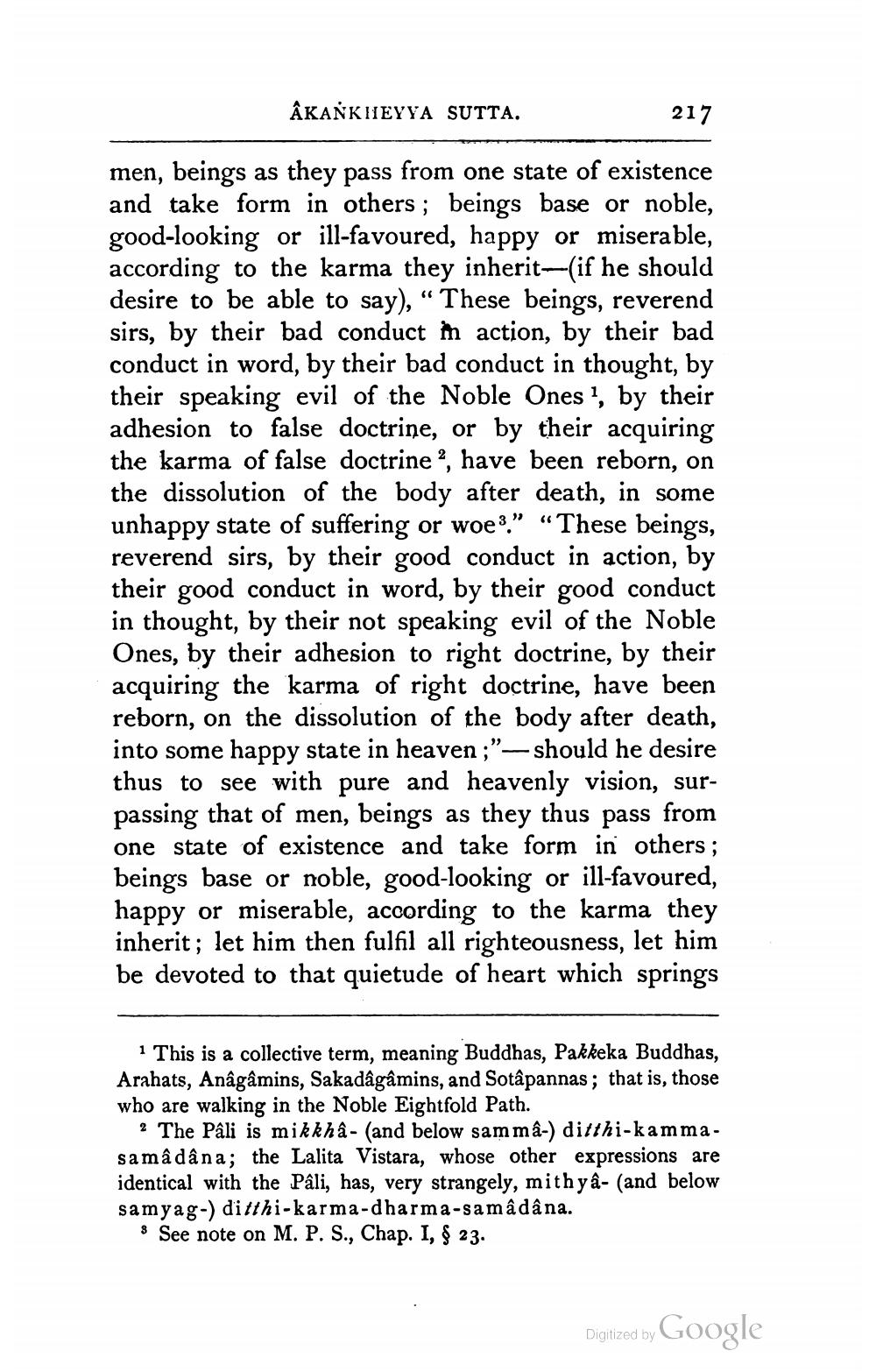________________
ÂKANKUEYYA SUTTA.
217
men, beings as they pass from one state of existence and take form in others; beings base or noble, good-looking or ill-favoured, happy or miserable, according to the karma they inherit-(if he should desire to be able to say), “ These beings, reverend sirs, by their bad conduct in action, by their bad conduct in word, by their bad conduct in thought, by their speaking evil of the Noble Ones ?, by their adhesion to false doctrine, or by their acquiring the karma of false doctrine ?, have been reborn, on the dissolution of the body after death, in some unhappy state of suffering or woe 3.” “These beings, reverend sirs, by their good conduct in action, by their good conduct in word, by their good conduct in thought, by their not speaking evil of the Noble Ones, by their adhesion to right doctrine, by their acquiring the karma of right doctrine, have been reborn, on the dissolution of the body after death, into some happy state in heaven ;"— should he desire thus to see with pure and heavenly vision, surpassing that of men, beings as they thus pass from one state of existence and take form in others; beings base or noble, good-looking or ill-favoured, happy or miserable, according to the karma they inherit; let him then fulfil all righteousness, let him be devoted to that quietude of heart which springs
1 This is a collective term, meaning Buddhas, Pakkeka Buddhas, Arahats, Anâgâmins, Sakadâgâmins, and Sotâpannas; that is, those who are walking in the Noble Eightfold Path.
? The Pâli is mikkhâ- (and below sam mâ-) ditthi-kammasamâ dâna; the Lalita Vistara, whose other expressions are identical with the Pali, has, very strangely, mithya- (and below samyag-) ditthi-karma-dharma-samâdâna.
8 See note on M. P. S., Chap. I, § 23.
Digitized by Google




